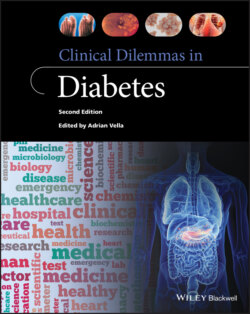Читать книгу Clinical Dilemmas in Diabetes - Группа авторов - Страница 47
Type 1 Diabetes Prediction and Prevention Study (DIPP)
ОглавлениеThe DIPP study was a randomized double‐blind trial investigating whether nasal insulin could reduce the incidence of T1D in children with HLA genotypes and autoantibodies conferring increased risk of disease [25]. Daily doses of intranasal insulin were administered; however, after 1.8 years of observation, no differences were found in the rate of progression to T1D.
Similar results have been obtained in the Intranasal Insulin Trial (INIT I). This pilot study, based in Australia and New Zealand, treated autoantibody‐positive subjects with intranasal insulin, showing that intranasal insulin did not prevent T1D onset. However, investigators found that intranasal insulin administration induced immune changes consistent with mucosal tolerance to insulin, justifying a formal trial to determine if intranasal insulin is immunotherapeutic and retards progression to clinical diabetes [30]. The INIT II study is still ongoing and will expand the number of enrolled subjects. Thus, clinical trials evaluating insulin administration for disease prevention have demonstrated to date limited success in preventing the disease's progression.
